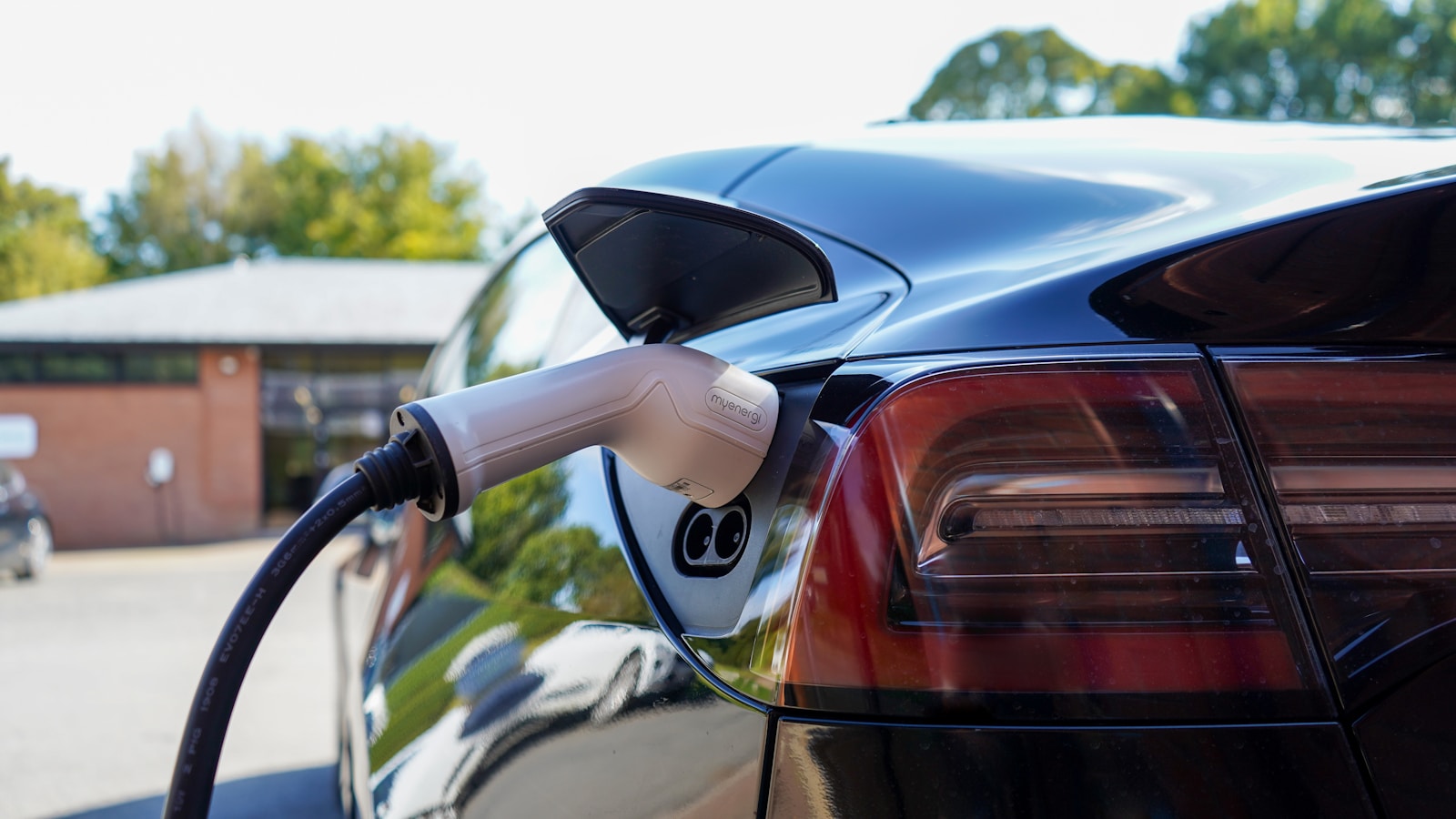Electric vehicles (EVs) have gained popularity in recent years due to their environmental benefits and technological advancements. One of the key considerations for prospective buyers is the cost of maintenance compared to traditional gasoline-powered vehicles. While the initial purchase price of EVs can be higher, they often come with lower ongoing maintenance costs, making them an attractive option for those looking to save money in the long term.
This article explores the factors that contribute to the lower maintenance costs of electric vehicles and how they compare to traditional gas cars.
1. Fewer Moving Parts in EVs
One of the main reasons electric vehicles are cheaper to maintain is the fact that they have fewer moving parts than traditional gas-powered cars. Internal combustion engine vehicles (ICEs) rely on complex systems, such as the engine, transmission, and exhaust system, all of which require regular maintenance and are prone to wear and tear.
Key Differences in Moving Parts:
- Electric motors: EVs are powered by electric motors, which have significantly fewer moving parts compared to gas engines. This reduces the likelihood of parts wearing out or needing replacement.
- Transmission: Most EVs use a single-speed transmission, unlike gas cars, which have multi-speed transmissions that require fluid changes and can suffer from mechanical issues over time.
- No exhaust system: EVs don’t need an exhaust system, so there’s no need for muffler or catalytic converter repairs, which can be costly in gas cars.
Why It’s Important: The simplicity of electric drivetrains means fewer opportunities for mechanical failure, reducing the need for repairs and lowering maintenance costs.
2. No Oil Changes
Unlike gasoline-powered cars, electric vehicles don’t require oil changes. In a traditional car, oil is necessary to lubricate the engine’s moving parts and prevent excessive wear. Over time, the oil degrades and needs to be replaced, typically every 3,000 to 7,500 miles, depending on the vehicle.
Benefits of No Oil Changes:
- Lower ongoing costs: Oil changes, while relatively inexpensive, add up over time. EV owners eliminate this regular expense entirely.
- Fewer fluid replacements: EVs also don’t require other fluids like transmission fluid or engine coolant, which need to be replaced periodically in gas cars.
Why It’s Important: The absence of oil changes and fluid replacements significantly reduces the maintenance requirements of electric vehicles, saving owners both time and money.
3. Reduced Brake Wear
Electric vehicles use a feature known as regenerative braking, which helps to slow the vehicle down while simultaneously converting kinetic energy into electricity to recharge the battery. This reduces the reliance on traditional friction-based braking systems, meaning that brake pads and rotors experience less wear and tear.
How Regenerative Braking Reduces Brake Wear:
- Extended brake life: Since regenerative braking does much of the work, brake pads and rotors last longer in electric vehicles compared to gas cars.
- Lower brake replacement costs: The longer lifespan of brake components means that EV owners will need to replace brake pads and rotors less frequently, reducing maintenance costs.
Why It’s Important: Regenerative braking not only improves energy efficiency but also helps extend the life of brake components, reducing the frequency and cost of brake maintenance.
4. Battery Maintenance and Longevity
One of the major concerns for potential EV buyers is the battery life and the cost of replacing a battery pack. While EV batteries are expensive, advancements in battery technology have increased their lifespan, with most modern EVs offering warranties of 8 years or 100,000 miles or more for their batteries.
Battery Longevity:
- Long battery life: Most EV batteries are designed to last for many years, and improvements in battery technology continue to extend their lifespan. In fact, it’s not uncommon for batteries to last well beyond 10 years or 150,000 miles.
- Battery management systems: EVs are equipped with sophisticated battery management systems that help optimize battery performance and longevity, reducing the need for replacement.
Cost of Battery Replacement:
While replacing an EV battery can be expensive (often ranging from $5,000 to $15,000), it is a rare occurrence. Most owners will not need to replace the battery during the typical lifespan of their vehicle.
Why It’s Important: While battery replacement is a potential cost to consider, the long lifespan of modern EV batteries means that most owners will not face this expense during their ownership period. Additionally, the absence of other costly engine repairs helps offset this concern.
5. Fewer Routine Services
Electric vehicles require far fewer routine maintenance services than gas-powered cars. Gas cars need regular servicing, including oil changes, spark plug replacements, air filter changes, and more. EVs, on the other hand, have much simpler maintenance schedules.
Common Services Required for Gas Cars:
- Oil changes: Typically every 3,000 to 7,500 miles.
- Spark plug replacement: Every 30,000 to 100,000 miles.
- Timing belt replacement: Around 60,000 to 100,000 miles.
- Fuel filter replacement: Periodically, depending on the vehicle.
Maintenance for EVs:
- Tire rotations: EVs still require regular tire rotations and alignments.
- Brake fluid: While brake wear is reduced, EVs may still require brake fluid replacement.
- Battery checkups: Periodic battery health checks ensure the longevity of the EV’s battery pack.
Why It’s Important: With fewer routine services required, EVs are less costly and time-consuming to maintain compared to their gas-powered counterparts.
6. Cost of Electricity vs. Gasoline
While this isn’t directly related to maintenance, it’s important to consider the cost of fueling an electric vehicle versus a gasoline car. The cost of electricity is generally much lower than gasoline, resulting in significant fuel savings over time.
Fuel Cost Comparison:
- Electricity: Charging an EV at home typically costs much less per mile driven than filling up a gas car. The average cost to charge an EV is about $0.10 to $0.20 per kilowatt-hour.
- Gasoline: Gas prices fluctuate, but the cost per mile for a gas car is usually higher than for an EV, especially if gas prices are high.
Why It’s Important: Over time, the lower cost of electricity compared to gasoline can save EV owners hundreds or even thousands of dollars annually.
7. Environmental Benefits and Incentives
In addition to lower maintenance costs, owning an electric vehicle comes with potential environmental benefits and financial incentives. Many countries and states offer tax credits, rebates, and incentives for purchasing an EV, further offsetting the initial purchase price and ongoing maintenance costs.
Environmental Benefits:
- Zero tailpipe emissions: EVs don’t produce exhaust emissions, making them a cleaner alternative to gas cars.
- Reduced carbon footprint: By running on electricity, especially if sourced from renewable energy, EVs can help reduce the overall carbon footprint.
Financial Incentives:
- Tax credits: In some countries, buyers of new electric vehicles can receive tax credits of up to $7,500.
- State incentives: Additional state or local rebates and incentives can further reduce the cost of owning an EV.
Why It’s Important: The environmental benefits and financial incentives of owning an EV add further value, making them an attractive choice beyond just maintenance savings.
Conclusion: Are Electric Vehicles Cheaper to Maintain?
Overall, electric vehicles are cheaper to maintain than gas-powered cars due to their simpler design, fewer moving parts, and reduced need for routine maintenance like oil changes and brake replacements. While battery replacement is a potential concern, the long lifespan of modern EV batteries means that most owners won’t face this cost during the vehicle’s life.
In addition to lower maintenance costs, EV owners benefit from cheaper fueling costs, reduced environmental impact, and potential financial incentives. For those looking to save money in the long run, electric vehicles offer significant cost advantages over traditional gas-powered cars.




